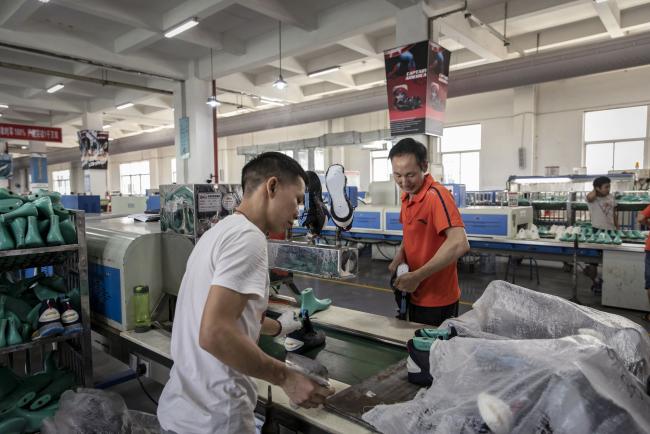(Bloomberg) -- The first official indicator of the Chinese economy in 2020 signaled the nation’s factories were struggling even before the country shut down for the Lunar New Year holidays and the coronavirus outbreak worsened.
The manufacturing purchasing managers’ index dropped to 50 in January, according to data released by the National Bureau of Statistics on Friday, matching the median estimate of economists. The non-manufacturing gauge was 54.1, compared with 53.5 the previous month.
Due to the holiday, the surveys were conducted earlier in January than normal, before the extent of the disease outbreak and the disruption to the economy were evident.
China’s economy was already slowing amid weak domestic demand, a crackdown on debt and the trade war with the U.S. The outbreak of the novel coronavirus, which has killed hundreds and sickened thousands, is now hammering growth as businesses shut for at least another week and people across major cities avoid going out for fear of getting sick.
“We expect a big plunge of both manufacturing and service PMIs in February and March,” said Lu Ting, chief china economist at Nomura Holdings Inc. in Hong Kong. “The virus outbreak may further weaken domestic demand and thus render the upcoming policy easing less effective.”
The worsening health crisis has seen numerous economists revise down their forecasts for growth. Many expect the government and central bank will step in to cushion the blow.
What Bloomberg’s economists say...
The positive signal from China’s non-manufacturing PMI in January clearly doesn’t reflect the reality now - the economy will take a hit in the near term from the outbreak, and policy is likely to shift to intensive cyclical support for growth.
-- Chang Shu, David Qu, Bloomberg Economics
Click here for full note
The impact of the new coronavirus “has not been fully reflected in January PMI, and its influence on the economy shouldn’t be underestimated,” Zhang Liqun, an analyst at China Logistics Information Center compiling the data with the NBS, wrote in a statement. “Efforts are needed to stabilize growth.”
GDP growth will slow to 4% year-on-year in the first quarter from a previously forecast 5.6%, according to Andrew Tilton, chief economist for Asia Pacific at Goldman Sachs (NYSE:GS) in Hong Kong. Even with the assumption of a relatively quick rebound in the second and third quarters, that would lower full-year 2020 growth to 5.5%, he said.
“A more prolonged outbreak could lower full-year growth to 5% or even below,” Tilton wrote in a note to clients dated Jan. 31.
